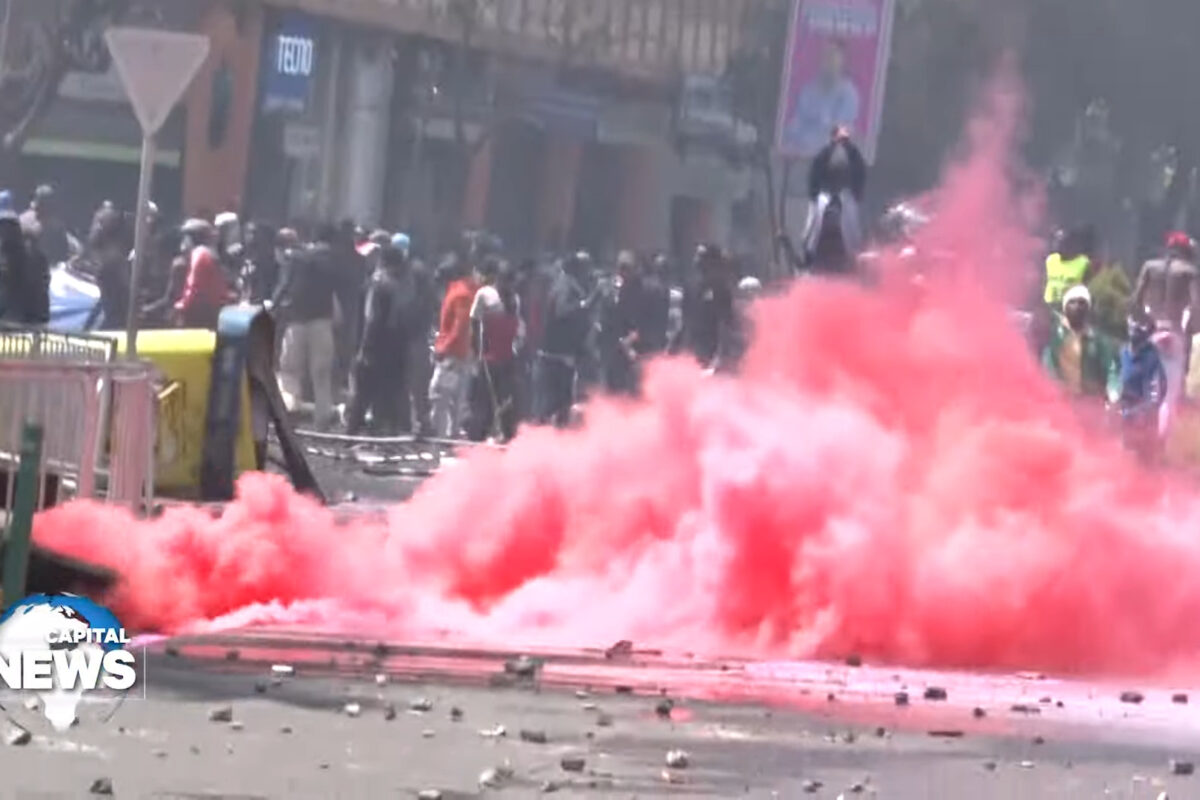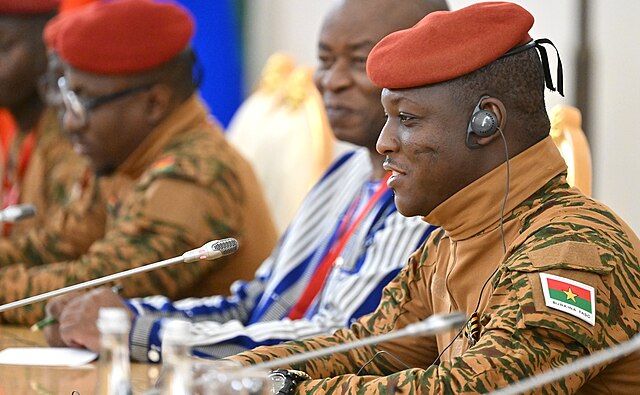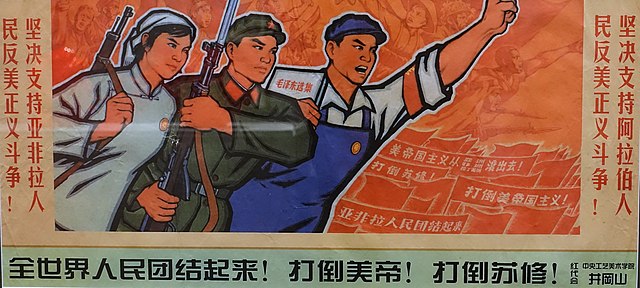The Minka
After a convulsive week, on Friday we joined a virtual minka to share our reactions to the Ecuadorian elections of Sunday 7 February. A minka, or minga, is a solidarity group, a sort of informal collective. Each of us shared analyses, doubts, fears and hopes. For us, sharing does not mean we each have the same point of view. The beauty of collective spaces like Ecuadorminka is that different views and histories come together.
By sharing our thoughts and feelings, we analyse the political puzzle. We have a common horizon – a country which fights against neoliberalism until dignity becomes a habit and a halt to the oligarchy attacking the lives of the people. Our historical demands for social justice accumulate like a big snowball, and inspire us both to honour where we come from and to paint a picture of where we want to go.
On Friday night, we were very excited as we joined the minga. Our comrades from other corners of Latin America/Abya Yala (the Panamense pre-Columbian name for Latin America) have been asking us to explain what is happening and what the second round in Ecuador will be like. To start with one thing is very clear to us. The traditional right wing lost. The sacred alliance between the rancid banker, the agro-exporting oligarchies and the interests of the IMF lobbyists lost.
The popular wave fully understood who was threatening their rights, who had imposed dismissals without compensation, who handed over Julian Assange to the yankees, who privatised public assets, who preferred to pay IMF debt instead of investing in healthcare and who organised the distribution of hospitals to profiteers.
The greatest shame is that this anti-popular onslaught took place in the middle of the pandemic! We loudly REJECT the precarization of life in the streets and at the ballot box.
The Right-Wing IMF Lobbyists Were Defeated
In 2017, Lenín Moreno assumed the presidency, ignoring the progressive project for which he was elected. Instead, he turned to illegitimately (mis)govern hand in hand with Jaime Nebot, leader of Christian Socialism, and Guillermo Lasso. Lasso had already been Minister of the Economy in Jamil Mahuad’s 1999 government. The unprecedented economic, political and social crisis drove hundreds of thousands of citizens out of the country.
Today, despite the media bombardment supporting his candidacy, the alliance of nefarious actors led by the bankers’ candidate was defeated by the historical memory of the people. They received 19.74% of the vote, subject to the current recount. The people also rejected the shameful parade of pyrrhic representatives of the decaying political class – 13 candidates, none of whom attained 2%.
The massive popular and indigenous mobilisation of October 2019 against the imposition of the IMF’s austerity agenda lives on. It reminds us the urgency of fighting the armed political-economic elites who had no qualms about massacring the poor. The repressive forces assassinated eight demonstrators, seriously wounded more than 1,500 people and irregularly detained 1,228 demonstrators.
The Minister of Government María Paula Romo and the Minister of Defence Oswaldo Jarrín, branded members of CONAIE [Confederation of Indigenous Nationalities of Ecuador], Correístas [followers of Rafael Correa], students, feminists, and alternative media journalists as vandals and terrorists.
With the hegemonic media machine on their side, they tried to impose hatred of a supposed internal enemy that they said was commanded by “Correism” and “Castro-Chavism”. Meanwhile, in reality, a common struggle for social rights and a fair life was being waged in the streets.
The results of the vote on Sunday 7th of February show that the co-government of the right wing did not succeed in pushing its “anti-Communist” agenda, the infamous consequences of which we know well from the bloody history of our continent.
The Left and the Struggle for a Life with Dignity
The progressive candidate of the Union for Hope, Andrés Arauz, came first with 32.70% of the vote. Meanwhile, Yaku Pérez Guartambel, candidate for Pachakutik, achieved a historic vote for the electoral branch of the indigenous movement with 19.38% (subject to recount).
For the 137-seat National Assembly, 49 candidates from the Union for Hope, 27 from Pachakutik and 18 from the Democratic Left were elected. The right-wing won 18 assembly seats for the Social Christian Party and 12 for the CREO.
From the social organisations we will demand that this majority support for the forces from the centre to the left be translated into anti-neoliberal alliances that work for a dignified life and not into inhumane pacts in favour of capital.
Trying to decipher the consequences of the elections, the minga now discussed the nature of the state. Understanding what is at stake demands utmost intellectual honesty. On the one hand, Arauz will have to deepen his progressive agenda of expanding social rights, firmly distancing himself from the macho conservatism and extractivist onslaught of Rafael Correa, proposing respectful dialogues with the movements that fight for the defence of the land.
On the other hand, Yaku Pérez should retract proposals such as the elimination of the tax on currency outflows, which would jeopardise monetary stability and the flow of money within the country, facilitating capital flight. Only in this way will it truly comply with the anti-neoliberal mandate of the base, to respect the historic collective project of the indigenous movement.
In both cases, it will be vital that the left pushes for the radicalisation of the projects and does not allow itself to be intimidated. From Ecuadorminka, we echo the words of Leonidas Iza, president of the Indigenous and Peasant Movement of Cotopaxi and leader of the October 2019 strike: “We will fight the right, wherever it comes from!”
Only respect for the anti-neoliberal will, of which October 2019 was the most recent and combative episode, can ensure legitimacy for political organisations. These will undoubtedly need popular support to face the potential political and economic blockade by the oligarchic elites and the countries of the so-called “first world”.
Let us not forget that dollarisation makes Ecuador dependent on the United States, without the capacity to sovereignly define its monetary policy. This is why the radicalisation of a project for change demands that we remain mobilised and weave strong ties of international solidarity. Is society ready for deeper structural changes? Is there an accumulation of revolutionary forces? And how can we organise ourselves to move in that direction?
Weaving Collective Dreams of Colour and Dignity
We are aware that the electoral processes are only a thread in the colourful tapestry of struggles for social transformation. However, we also know that the elections mark the field where we will express and deepen our struggles and organisational processes from below. The road is steep and full of challenges. That is why we are committed to bringing together the mobilising social forces of popular organisations: indigenous, Afro-descendant, student, feminist, environmentalist, anti-racist, counter-hegemonic, etc.
It is time to exercise tolerant and (self-)critical dialogue to overcome useless dichotomies that only divide us. Only in this way will we be able to promote the unity and renewal of the left, with strengthened social bases that legitimise the construction of an anti-neoliberal political project, without sectarianism or egos.
As Ecuadorminka, we invite you to dream and join us in a great popular, plurinational and anti-neoliberal minka to experience new political practices and draw new horizons of Sumak Kawsay, both in Ecuador and beyond: a horizon that extends throughout Abya Yala.
“We are like grains of quinoa, if we are alone, the wind blows us away. But if we are united in a basket, the wind does nothing. It will sway, but it will not make us fall. We are like the wild straw that is plucked and grows again…and we will sow the world with wild straw”.
Dolores Cacuango (1881-1971, indigenous leader, leader of the Ecuadorian Communist Party)
EcuadorMinka speaks for Ecuadorian migrants on European territory, builds solidarity with basic organizations in Ecuador and migrants in Europe, and intervenes politically in public spaces. Translation: Giorgio de Cesare




